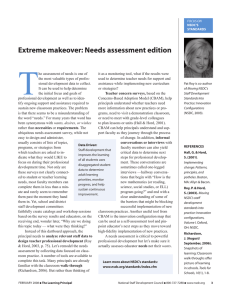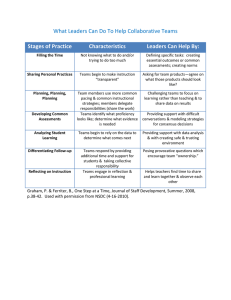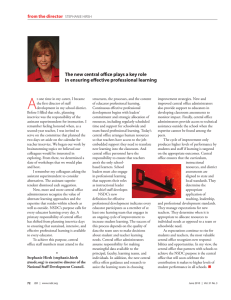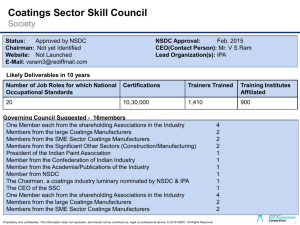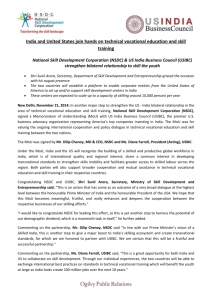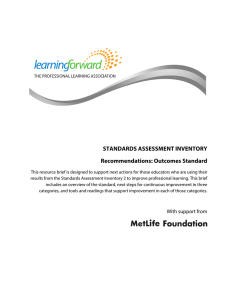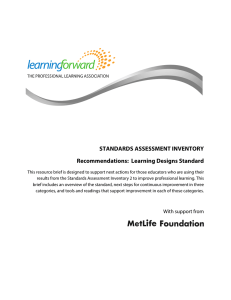Different needs require different designs
advertisement
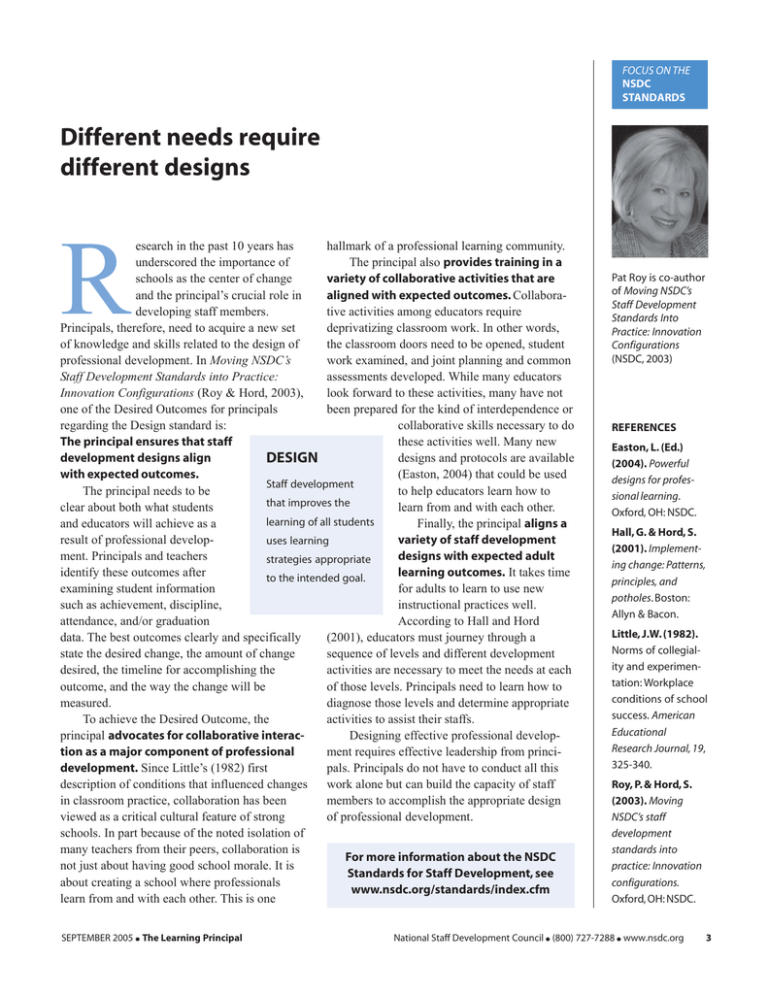
FOCUS ON THE NSDC STANDARDS Different needs require different designs hallmark of a professional learning community. esearch in the past 10 years has The principal also provides training in a underscored the importance of variety of collaborative activities that are schools as the center of change aligned with expected outcomes. Collaboraand the principal’s crucial role in tive activities among educators require developing staff members. deprivatizing classroom work. In other words, Principals, therefore, need to acquire a new set the classroom doors need to be opened, student of knowledge and skills related to the design of work examined, and joint planning and common professional development. In Moving NSDC’s assessments developed. While many educators Staff Development Standards into Practice: look forward to these activities, many have not Innovation Configurations (Roy & Hord, 2003), been prepared for the kind of interdependence or one of the Desired Outcomes for principals collaborative skills necessary to do regarding the Design standard is: these activities well. Many new The principal ensures that staff designs and protocols are available development designs align DESIGN (Easton, 2004) that could be used with expected outcomes. Staff development to help educators learn how to The principal needs to be that improves the learn from and with each other. clear about both what students learning of all students Finally, the principal aligns a and educators will achieve as a variety of staff development result of professional developuses learning designs with expected adult ment. Principals and teachers strategies appropriate learning outcomes. It takes time identify these outcomes after to the intended goal. for adults to learn to use new examining student information instructional practices well. such as achievement, discipline, According to Hall and Hord attendance, and/or graduation (2001), educators must journey through a data. The best outcomes clearly and specifically sequence of levels and different development state the desired change, the amount of change activities are necessary to meet the needs at each desired, the timeline for accomplishing the of those levels. Principals need to learn how to outcome, and the way the change will be diagnose those levels and determine appropriate measured. activities to assist their staffs. To achieve the Desired Outcome, the Designing effective professional developprincipal advocates for collaborative interacment requires effective leadership from princition as a major component of professional development. Since Little’s (1982) first pals. Principals do not have to conduct all this work alone but can build the capacity of staff description of conditions that influenced changes members to accomplish the appropriate design in classroom practice, collaboration has been of professional development. viewed as a critical cultural feature of strong schools. In part because of the noted isolation of many teachers from their peers, collaboration is For more information about the NSDC not just about having good school morale. It is Standards for Staff Development, see about creating a school where professionals www.nsdc.org/standards/index.cfm learn from and with each other. This is one R SEPTEMBER 2005 I The Learning Principal Pat Roy is co-author of Moving NSDC’s Staff Development Standards Into Practice: Innovation Configurations (NSDC, 2003) REFERENCES Easton, L. (Ed.) (2004). Powerful designs for professional learning. Oxford, OH: NSDC. Hall, G. & Hord, S. (2001). Implementing change: Patterns, principles, and potholes. Boston: Allyn & Bacon. Little, J.W. (1982). Norms of collegiality and experimentation: Workplace conditions of school success. American Educational Research Journal, 19, 325-340. Roy, P. & Hord, S. (2003). Moving NSDC’s staff development standards into practice: Innovation configurations. Oxford, OH: NSDC. National Staff Development Council I (800) 727-7288 I www.nsdc.org 3
